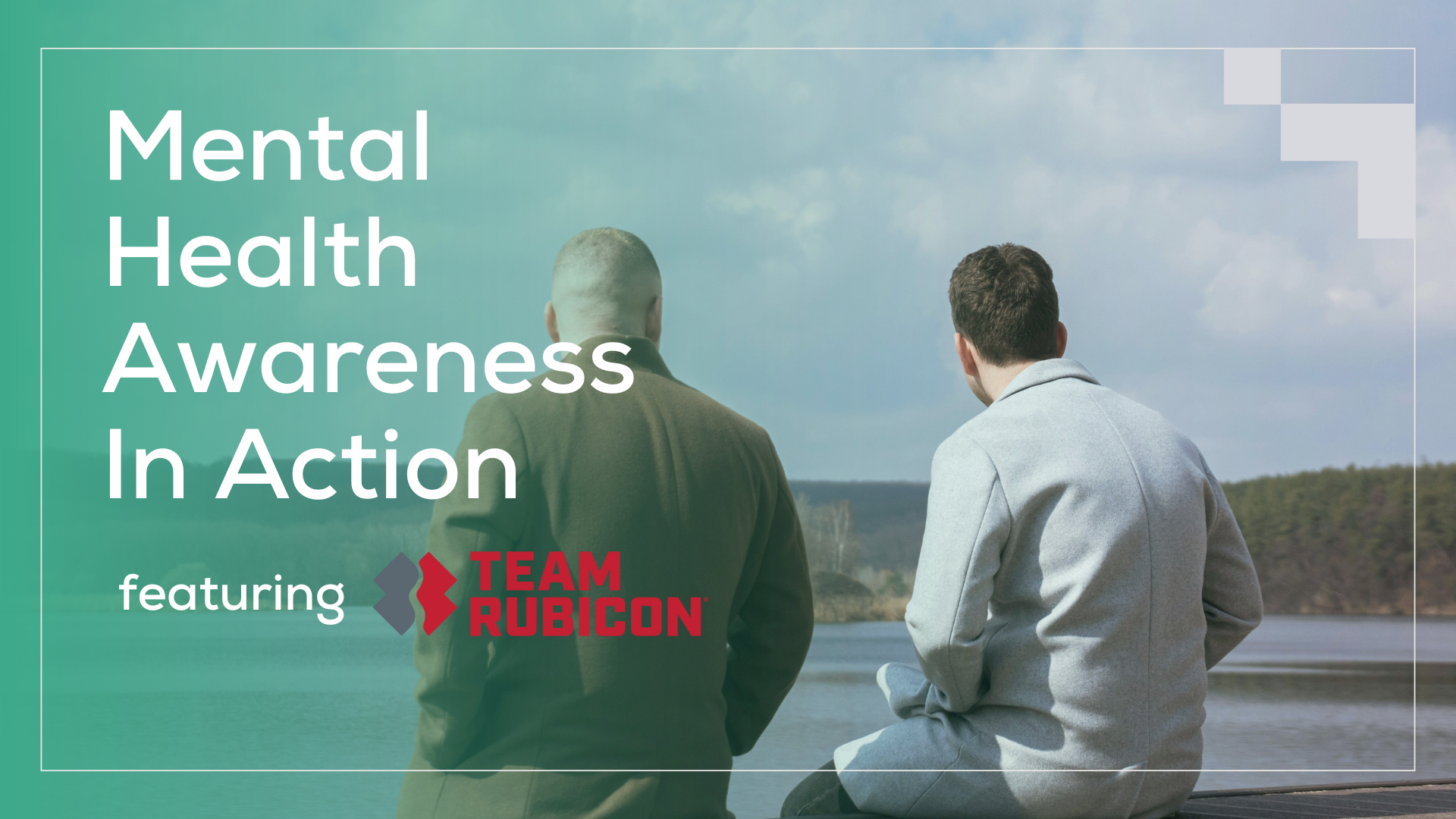At Idea Hall, we believe that doing good work for good causes means supporting the people behind the mission, too.
For more than two decades, Idea Hall has worked alongside nonprofits and community organizations to help build stronger brands, drive meaningful engagement, and foster deeper, lasting impact.
In this edition of the Goodness Report, we’re exploring why prioritizing mental health is essential for nonprofits and service organizations, and how small steps can lead to stronger teams and healthier communities. May is Mental Health Awareness Month and the perfect opportunity to spotlight how mission-driven organizations like our client, Team Rubicon, strengthen their impact by supporting mental health and well-being across the spectrum of their disaster relief and community support work around the globe.
Why Mental Health Matters for Mission-Driven Organizations
Among the nonprofit and service sectors, the demand for mental health support is growing fast.
- According to Mental Health America (2023), 76% of nonprofit employees report burnout, and 60% say their workload has increased in the past year without additional support.
- The World Health Organization (WHO) reports that one in every eight people globally lives with a mental health disorder – and crisis workers often experience rates much higher than the general population.
- In the U.S., the CDC reports that nearly 1 in 3 adults experienced symptoms of anxiety or depression in the past year, with frontline service workers experiencing higher exposure to stress-related conditions.
Organizations that address mental health proactively – not reactively – are better positioned to help sustain their teams and achieve long-term impact.
⭐ Tip: Incorporate wellness initiatives like peer support groups, flexible service models, and mental health resources into your volunteer and staff programs.
Communicating with Care
Mental health stigma can become a hidden barrier, especially in environments where grit, sacrifice, and resilience are deeply embedded into organizational culture.
- A 2022 survey by Mind Share Partners found that 76% of U.S. workers reported at least one symptom of a mental health condition in the past year, but only 49% felt their workplace was safe for open discussion.
- The National Alliance on Mental Illness (NAMI) emphasizes that stigma often delays help-seeking behavior, leading to worsening outcomes and increased absenteeism or turnover.
Creating a culture of openness and compassion isn’t just “nice to have”, it’s vital for building organizational trust and resilience.
According to the National Council for Mental Wellbeing, employees in psychologically safe workplaces are more engaged, loyal, and productive – and 83% say they’re more likely to stay long-term in organizations that prioritize mental health.
⭐ Tip: Normalize mental health conversations through leadership messaging, workshops, and peer-to-peer storytelling. Small shifts can create lasting cultural change.
Building Trust and Community Resilience
Prioritizing mental health helps organizations form deeper, more meaningful connections – internally and externally.
- The Substance Abuse and Mental Health Services Administration (SAMHSA) identifies trauma-informed care as a key factor in reducing long-term health issues and improving community trust in service-based organizations.
- Research from Johns Hopkins Bloomberg School of Public Health shows that mental health-focused community programs improve participation and engagement, especially in underserved areas.
Transparent communication, accessible resources, and trauma-informed practices don’t just help individuals, they ripple outward.
When organizations model proactive care, they reinforce values like empathy, strength, and solidarity – hallmarks of trust and sustainability.
⭐ Tip: Consider weaving mental health literacy and resources into public-facing communications, community events, and service offerings to extend support beyond internal teams.
![]()
Client Spotlight: Team Rubicon
As a veteran-led disaster response organization, Team Rubicon has a unique understanding of the connection between service, resilience, and mental health. Their work shows that supporting mental health and well-being isn’t just a side initiative – it’s critical to mission success.
They’ve built a culture-based peer support model that supports both the physical and emotional well-being of their “Greyshirts,” the moniker for their volunteers who provide critical aid to communities around the world in the wake of all natural disasters, from wildfires and floods to hurricanes and tornadoes.
Team Rubicon integrates peer support and a commitment to destigmatizing mental wellness across their platforms by partnering with best-in-class organizations to provide access to mental health resources. They are also a proud member of Face the Fight, a national coalition launched by the USAA and supported by leading mental health organizations, committed to reducing veteran suicide by confronting stigma and increasing access to care.
“One of the most powerful ways we create a culture in support of well-being, is by giving our Greyshirts the space to share their stories. Every experience, every voice adds strength to the fabric of our mission.” says Jon Connors, Director of Comms at Team Rubicon.
Peer support and well-being models such as these are supported by VA and CDC studies, which show they improve trust and reduce stigma, especially in military and veteran communities.
Through peer support, partnering with best-in-class mental health resources, and a commitment to open dialogue, Team Rubicon demonstrates what it means to lead with resilience, heart, and strength. By investing in the mental wellness of their teams, nonprofits like Team Rubicon can build stronger, more sustainable teams and create ripple effects of impact in the communities they serve.
Idea Hall is honored to work alongside mission-driven organizations who recognize that change starts with the people powering it.
If you’re ready to strengthen your organization from the inside out, Idea Hall is here to help.
Reach out to us today and let’s build something stronger together.
